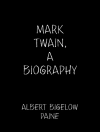Widely regarded as D. H. Lawrence’s greatest novel, Women in Love is both a lucid account of English society before the First World War, and a brilliant evocation of the inexorable power of human desire.
Women in Love continues where The Rainbow left off, with the third generation of Brangwens: Ursula Brangwen, now a teacher at Beldover, a mining town in the Midlands, and her sister Gudrun, who has returned from art school in London. The focus of the novel is primarily on their relationships, Ursula’s with Rupert Birkin, a school inspector, and Gudrun’s with industrialist Gerald Crich, and later with a sculptor, Loerke. Quintessentially modernist, Women in Love is one of Lawrence’s most extraordinary, innovative and unsettling works.
Mengenai Pengarang
David Herbert Richards Lawrence was an English writer of the 20th century, whose prolific and diverse output included novels, short stories, poems, plays, essays, travel books, paintings, translations, literary criticism and personal letters. His collected works represent an extended reflection upon the dehumanizing effects of modernity and industrialisation. In them, Lawrence confronts issues relating to emotional health and vitality, spontaneity, human sexuality and instinct.
Lawrence’s opinions earned him many enemies and he endured official persecution, censorship, and misrepresentation of his creative work throughout the second half of his life, much of which he spent in a voluntary exile he called his ‘savage pilgrimage.’ At the time of his death, his public reputation was that of a pornographer who had wasted his considerable talents. E. M. Forster, in an obituary notice, challenged this widely held view, describing him as ‘the greatest imaginative novelist of our generation.’ Later, the influential Cambridge critic F. R. Leavis championed both his artistic integrity and his moral seriousness, placing much of Lawrence’s fiction within the canonical ‘great tradition’ of the English novel. He is now generally valued as a visionary thinker and a significant representative of modernism in English literature.












